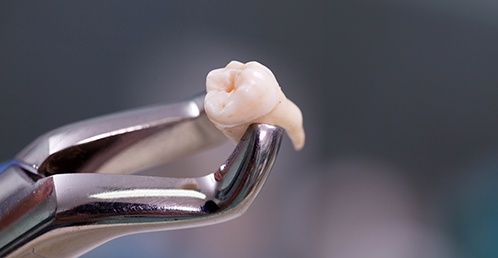
Are you a young adult suffering from a persistent toothache or jaw pain that won’t subside? If so, your wisdom teeth may be trying to erupt through your gumline. Although most people are born with these last molars, they tend to cause issues and are so commonly extracted that many consider it a rite of passage into adulthood.
Continue reading to learn more about how our Jacksonville Dental Specialists team can prevent problems by removing troublesome wisdom teeth, and feel free to contact us for additional information!
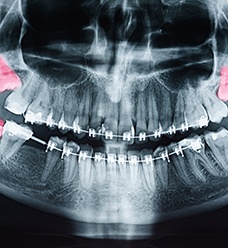
Wisdom teeth are the last set of molars to arrive years after your other adult teeth have already erupted. They typically show up between 17 and 25 years old, and there are usually four of them; one for each quadrant of the mouth. However, some people only have a few, and others are lucky enough not to be born with any!
It’s believed our ancestors developed them out of necessity to subsist on a tough diet of nuts and roots that would wear down their enamel. Thanks to modern dental care, cooked food, and utensils, they’re now considered a vestigial feature no longer needed for our survival.
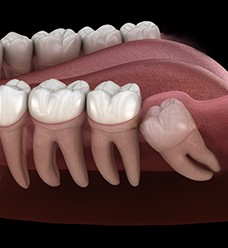
These teeth are removed more often than not because they are notorious for causing several oral issues, like:

It might vary slightly based on your unique circumstances, but typically, having wisdom teeth removed is a standard procedure. First, our team will numb or sedate you to ensure that you feel calm and comfortable the entire time. Then, if the tooth has fully cleared your gumline, our team will elevate it from the socket with a special instrument, then grasp it with forceps and gently wiggle it free.
Impacted wisdom teeth may require surgery to be extracted. This involves numbing or sedating you then creating a small incision in the gums to access the tooth in question, which may need to be broken into smaller pieces to be removed from your jawbone safely.

After your appointment, we’ll provide detailed post-op instructions to help you heal as quickly as possible and without complications. Your mouth must form a blood clot to shield the recently exposed nerves and bone tissue to prevent a painful condition known as dry socket.
Some helpful recovery tips include:
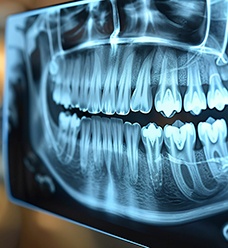
The cost of wisdom tooth extractions depends on several factors. When you visit us for your consultation, we can share some specific numbers and explain your payment options, such as insurance and financing. Wisdom tooth removal often costs more than regular tooth extractions, but it delivers valuable benefits that can preserve your oral health, spare you from pain, and deliver other worthwhile advantages.

The cost of your wisdom teeth procedure may depend on:

Many dental insurance plans do cover wisdom tooth extractions. Often, this procedure is classified as a major service, so about 50% of its cost might be covered, up to the amount of your plan’s annual maximum. Our team will be happy to help you figure out how your benefits apply and calculate your estimated out-of-pocket obligation. We can file claims for virtually all PPO plans.
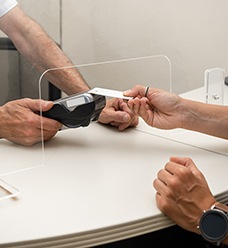
Outside of insurance, there are other provisions that might make it easier to afford wisdom tooth removal. For example, we work with CareCredit and Lending Club, third-party financers, to provide low-interest payment plans for patients. The application process is fast, and most patients are readily approved for credit. We also have an easy online payment option that you can use to take care of any outstanding balances.
To ensure the healing period goes as smoothly as possible, our Jacksonville dental team will provide you with detailed aftercare instructions. When it comes to getting a good night’s sleep, there are a few steps we recommend taking beforehand, including eating soft, plain foods at dinner, like yogurt, using a cold compress for 10 minutes at a time, and taking OTC pain medication (following the instructions on the label, of course). It’s also important that you prop yourself up on a few pillows so your head stays elevated throughout the night.
Oftentimes, a portion of the cost is covered by dental insurance providers. That said, there are some exceptions, like if you’ve already reached your annual maximum. If you’re not familiar with your benefits, and you’re curious if you have any available, don’t hesitate to ask us for help! We’d be happy to take a look at your plan, provide you with an estimate of your out-of-pocket expenses, and answer any remaining questions you have about the cost.
Prior to your appointment, we will provide some guidance on what to do and what not to do. A few examples include arranging for someone you know and trust to drive you to and from your appointment, not using tobacco products, and filling your pantry with soft foods. The morning of, choose something loose and comfortable to wear, and don’t eat or drink anything if you’re receiving general anesthesia.
Impacted wisdom teeth can result in immense discomfort, which is why patients assume that they only need their third set of molars removed if they are in pain. However, there are some cases where patients with severely problematic wisdom teeth don’t experience any abnormal symptoms. That’s why it’s important for us to consider more than your symptoms; we need to determine if there is enough room in your mouth, if there’s an increased risk of infection, or if their presence will negatively affect the alignment of your teeth and bite.
You need to wait until you’ve regained full sensation and the bleeding has slowed down (this usually takes a few hours). After that, you can eat extremely soft foods, like plain yogurt, applesauce, and pudding. Remember to check the temperature beforehand since your mouth will be extra sensitive, and avoid spicy and acidic foods entirely.
Important note: After about four days, you can start to incorporate more foods into your diet. By the one-week mark, you should be able to eat all of your favorites again.
No, you should not use a straw following your procedure. You also shouldn’t spit, drink alcohol, smoke, exercise, or do anything else that increases your risk of developing a dry socket.